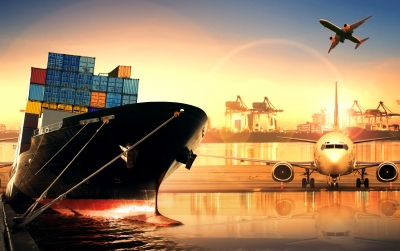-
The government plans to amend implementing rules of the Build-Operate-Transfer (BOT) Law to improve the investment climate and attract more private investors to undertake public-private partnership infrastructure projects
-
Finance Secretary Benjamin Diokno banks on the expansion of the economy to generate higher tax revenues that will be used to finance infrastructure development
Finance Secretary Benjamin Diokno said government is eyeing an amendment to the implementing rules and regulations (IRR) of the Build-Operate-Transfer (BOT) Law to improve the investment climate and attract more private investors to undertake public-private partnership (PPP) infrastructure projects.
“We are planning to, in fact, amend some of the provisions in the implementing rules and regulations [of] the Public-Private Partnership to really attract the private sector to participate in our Build, Build, Build program,” Diokno said in a recent interview over a public affairs program.
Amending Republic Act No. 6957, or the BOT Law, was one of the proposed priority measures that President Ferdinand Marcos Jr. mentioned in his first State of the Nation address.
Marcos said the amendments would address ambiguities in the law and the bottlenecks and challenges affecting implementation of the PPP program, and create a “more competitive and enabling environment.”
Marcos also said he would continue his predecessor’s “Build, Build, Build” infrastructure program to improve sectors such as agriculture, tourism, and general economic activity. He added that infrastructure development spending will be sustained at 5% to 6% of the gross domestic product.
Diokno said the previous administration had turned over to the new administration several big-ticket and shovel-ready projects that include, among others, several expressways across the country.
Diokno banks on the expansion of the economy to generate higher tax revenues that will be used to finance infrastructure development.
He said better tax administration through digitalization in both the Bureau of Customs (BOC) and the Bureau of Internal Revenue (BIR) can increase government revenues substantially.
He added that the plan to right-size the bureaucracy can lead to more efficient government operations and better delivery of public services.
Diokno cited the approval of amendments to the nearly century-old Public Service Act (PSA) as a complementary reform that would encourage investors to come in and implement some projects under the PPP program.
RA 11659, signed in March 2022, relaxes foreign ownership restrictions in certain industries. The measure identifies public utilities as follows: distribution and transmission of electricity; petroleum and petroleum product pipeline transmission systems; water pipeline distribution systems and waste water pipeline systems, including sewerage pipeline systems; seaports; and public utility vehicles.
Any industry not on the list will remain as public services and will be liberalized and not be bound by the 60-40% ownership principle under the Constitution.
“Now, foreign investors can participate in key areas – telecommunications, toll roads, shipping, airports – and they can own them 100%. I think with that combination – with the PPP projects and that new environment – I think we will be attracting a lot of foreign direct investments into the country,” Diokno said.









